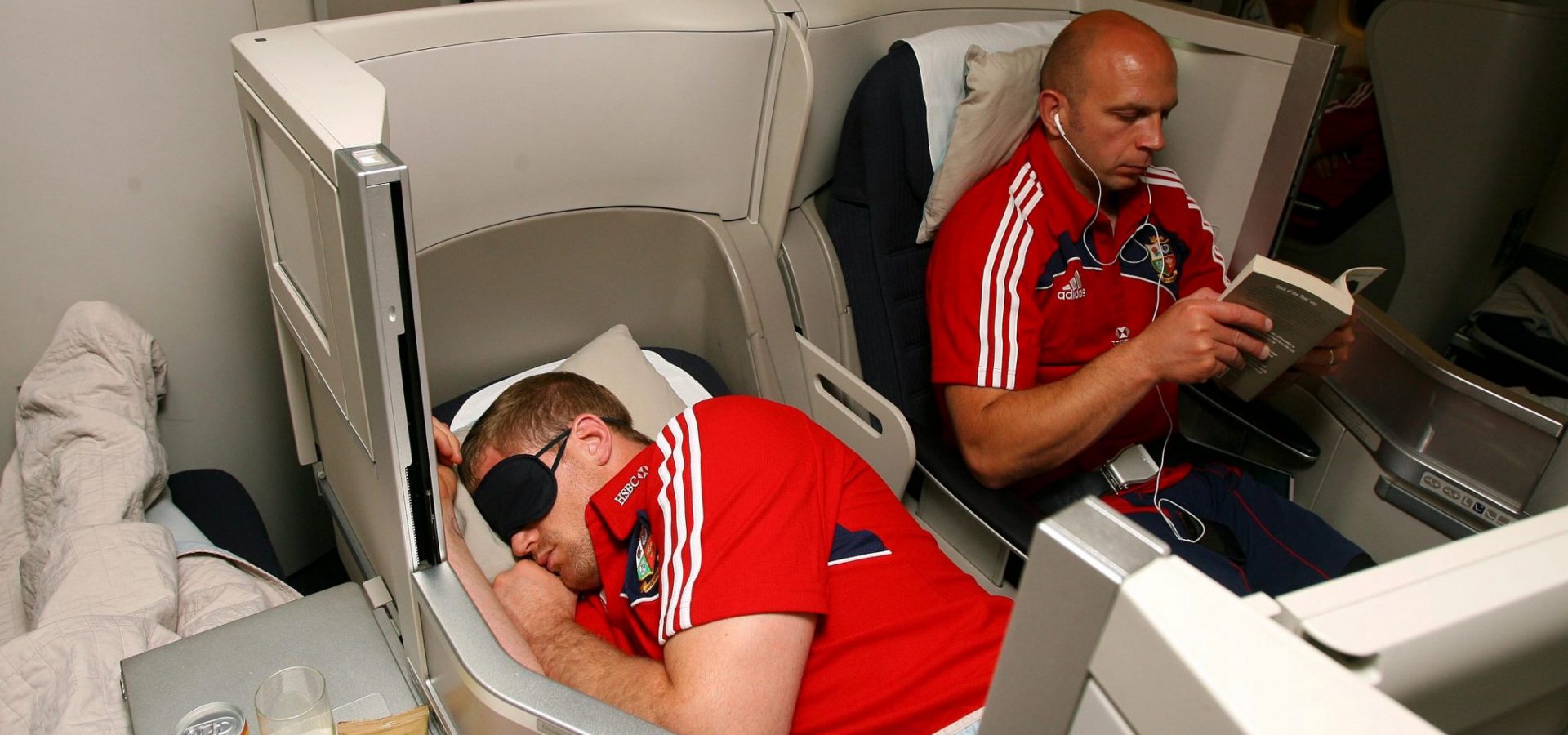News
LIGHTS OUT!

We are all aware of the benefits of a good night’s sleep. Those who go to the office for the day will feel confident that they can negotiate their way through their to-do list, while rugby players who compete at the highest level also understand the link between sleep quality and optimal performance.
For the vast majority of athletes, one sleepless night won’t necessarily have a negative impact on performance. However, sleep debt that has accumulated over time will need to be addressed. To avoid any risk it is important that good sleep hygiene becomes a paramount consideration that sits alongside a players’ mental, physical and emotional wellbeing.
While our members have been back to the grind for the past number of weeks, the start of the new campaign is always an interesting time. There might be new coaches to impress, several new faces to keep at bay and expectant fans to pacify. With many variables in the mix, players can struggle to avail of a refreshing sleep.
Below, we have outlined some suggestions that will help you get the most from your sleep. While they might seem common sensical, they are often neglected.
DO’s
Go to bed at the same time every day.
The body has a natural clock that it has developed through the recognition of personal habits. Try not to ignore what your body is telling you. Going to bed too early or too late may result in disturbed sleep.
Get up at the same time each day.
Getting up at the same time in the morning help to keep your body clock synchronised. As above, if you stick to regular waking and sleeping times, your body will become accustomed.
Think of a sleep cycle in 90-minute cycles.
We sleep in 90-minute sleep cycles, involving light and deep sleep patterns. An average good night’s sleep is 7-8 hours (5 cycles). If this is not enough, aim for 9 hours (6 cycles). Therefore, if you have a 7.30am start you would want to be asleep by 10.30pm. Allowing 30-minutes for winding down means that you should be in your bed by 10pm!
Develop a night-time routine
30-minutes prior to sleep, all mobile and electronic devices should be switched off while the room should be in relative darkness. It is recommended that you go from a hot environment to a cool room. For example, a warm shower causes the body’s temperature to rise and then fall which may help sleep. Noise and outside light should also be kept to a minimum. Before sleeping consider some stretching, yoga, mindfulness or listening to relaxing music. A comfortable bed, pillow and bedding will also help!
Develop a sleep strategy
Try to anticipate sleep problems. For instance, evening kick-offs or travel can disrupt sleep. If you can’t fall asleep or wake up in the middle of the night, develop a strategy in advance.
Additionally, some players may choose to nap during the day. However, napping at the wrong time of the day (late afternoon) or for too long can affect night time sleep.
Log your sleep
Record your sleeping patterns over a week. This can give a good indication of both the quantity and quality of your sleep. However, do not let your form be dictated to by different readings.
Only use your bed/bedroom for sleep
Some people use the bedroom as a multi-function area. Ensure that the bedroom is only associated with drowsiness and sleep. The brain makes connections between places and events and this needs to be reinforced.
Take medications as directed
Prescription medication can make you alert or sleepy. Therefore, instructions need to be followed stringently including the time of day that you take your medication. If you are having trouble sleeping because of injury or pain, consult your club physio or doctor.
DON’T
Drink anything containing caffeine in the evening
Coffee and tea are obvious caffeine culprits. Cola’s and other soft drinks may also be considered in this light. Caffeine has a life of up to 7 hours post-ingestion.
Stay in bed if you are awake
This is an important part of the sleep protocol. If you do not fall to sleep within a reasonable time (20-30mins), get up and do something that uses little energy. It is best to sit in a comfortable chair in dim lighting until you feel drowsy. Relaxation should be the goal as this will help induce sleep. Once you are tired, return to bed.
Look at the clock
Clocks with bright numbers can be a distraction, while obsessing over time will increase sleep difficulty.
Use alcohol to help you sleep
Alcohol helps you to fall asleep, but it is not conducive to a good night’s sleep as it prompts regular toilet visits, snoring, sleep apnoea and an early rise!
Rely on sleeping tablets
Sleeping tablets have a role where there is some circumstance that may temporarily cause you to have difficulty sleeping. They are only a temporary fix.
If you are having trouble sleeping, talk to your medical team.
Back to News
Latest Posts

Inaugural Past Players Padel Tournament

The Ireland Sports Fund

Making Tracks
















